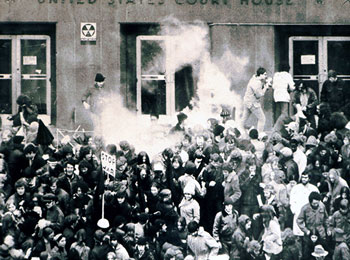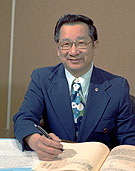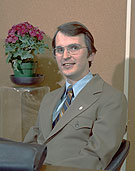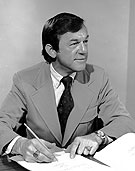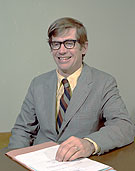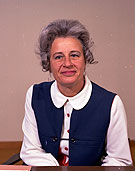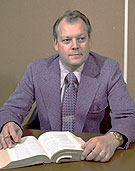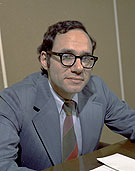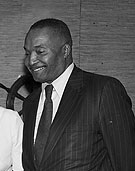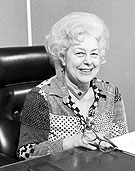Return to KRAB Audio Archives main menu
The KRAB Audio Archive
Spoken Word Programming - The 1970s
Go to spoken word programming of the | |||||
Programs are listed in chronological order. Problems listening, or comments? Email: KRABarchive
The text in bold italic that begins each program description is quoted from the original program guide entry. As some tapes lack complete descriptions, and we do not yet have all the program guides in which to find a description, some of the notes below are vague. If you can enlighten us about any program, please email us about that too.
Carlos Castaneda at the UW - Recorded Jan 12, 1970; KRAB Feb 6, 1970, Apr 26, 1972
CARLOS CASTANEDA - anthropologist and author of The Teaching of Don Juan (about a Yaqui Indian Shaman) speaking at the U. of W. January 12, 1970.
OK, I have no idea if he made it all up. I can imagine though, there are lots of anthropologists, fearing for the credibility of the profession, that care a great deal. But I don’t. Castaneda told a great story in his books, and his lecture presentations were, and are, equally fascinating. Castaneda describes meeting “Don Juan”, his Yaqui Indian shaman informant, and the challenge of living outside of a “gloss”.
![]() Listen now - Carlos Castaneda at the UW - KRAB Feb 6, 1970 (65:22)
Listen now - Carlos Castaneda at the UW - KRAB Feb 6, 1970 (65:22)
Recording collection of C Reinsch
KRAB Covers the TDA Demonstration, Federal Courthouse, Seattle - Feb 17, 1970; KRAB Feb 17, 1970
|
TDA, The Day After, was a demonstration planned by the radical Seattle Liberation Front to protest the conviction of the Chicago Eight Conspirators. It was a newsworthy event for Seattle for many reasons. First, it seemed likely to provoke violence, the city's first major "riot" since the Depression. Second, it was the first show of power by the Seattle Liberation Front, the radical group that replaced the Students for a Democratic Society at the University of Washington. The SLF openly, defied the police by announcing where and when the demonstration would take place. Finally, the demonstration would serve to show the breadth of support for the SLF and violent confrontation.
The staff of KRAB decided to report the demonstration as thoroughly as our limited facilities would allow. Four people, with three tape recorders among them, covered the demonstration from three points of view. Michael Wiater and Greg Palmer were in the Seattle Public Library with the Seattle Police. Bill Cleland was with the Seattle Liberation Front, Nancy Keith was on the street in front of the courthouse.
Besides the newsworthy aspects of the demonstration, the staff of KRAB was interested in finding out whether, with volunteers, an event of this kind could be reported objectively and unsensationally.
We decided to play the raw tape made at the demonstration as soon as we could get it to the studio, since we did not have the financial resources for remote live broadcasting. This was done to give an accurate, immediate report of what happened. Following the demonstration, rumors that a gun battle had occurred, that policemen and demonstrators had been killed were quelled by the KRAB coverage. Tapes were on the air within an hour after the demonstration began. This haste allowed no time to audition the tapes for obscenity. Thus we used a tape loop. When this became impossible, due to a mechanical breakdown, the engineer, Bob Friede, used masking background music.
After all the tapes had been aired, the four reporters held a panel discussion on the demonstration and its results. The raw tape was later used by Nancy Keith to produce the documentary "TDA: Running the Bulls in Blue." This program was unofficially commended by Seattle Assistant Police Chief Eugene Corr.
The text above is from KRAB Exhibit 18 which was submitted to the FCC Nov 12, 1970 in preparation for a hearing to appeal the FCC's action of renewing KRAB's license for one year instead of the normal three.
Clip 1 - The first clip we recovered is a 10 minute excerpt from the one hour documentary aired May 24, 1970. The KRAB reporters describe the activity in front of the courthouse shortly after 2:00pm, the apparent release of tear gas by someone, and the absence (still) of police on the street. According to news reports, at 2:15 pm demonstators were warned and given one minute to clear the courthouse area. The first voices heard are Michael Wiater and Greg Palmer. Bill Cleland's voice I do not know, but he was in the street, as also was Nancy Keith.
Recording courtesy Will Estill, WE0006
* * * * *
Clip 2 - During the demonstration KRAB reporters were sending tapes back to the station, where, starting at 3:30pm, they were broadcast unedited. This particular clip was broadcast on Feb 17 at about 6:45pm. Described is activity on the street around 4:00pm, and contains reactions by demonstrators and onlookers to the earlier events of the day. Bob Friede was at the controls, and seems to have mixed occasional music into the broadcast.
Recording courtesy Linda and Leonard Good, LG0025
RUNNING THE BULLS IN BLUE - KRAB's ever-hot for action news team of Nancy Keith, Bill Cleland, Greg Palmer, John Barnes, Michael Wiater, et al, report on Seattle's Court House Demonstration, February 17th. Our ear-witness coverage of this sporting event is a must for our local listeners. [Program Guide 187, Mar 1970]
Clip 3 - In addition to the broadcasts on the day of the demonstration (Feb 17) and in the edited documentary (aired May 24), there was a broadcast on Mar 16, 1970. At 81 minutes it is the longest contiguous audio we have of the event, and I believe it to be the first cut of Nancy Keith's documentary "Running the Bulls in Blue". It was recorded off the air by Leonard Good.
![]() Listen now - First edit of Running the Bulls in Blue - Clip 3 - KRAB Mar 16, 1970 (81:35)
Listen now - First edit of Running the Bulls in Blue - Clip 3 - KRAB Mar 16, 1970 (81:35)
Recording courtesy Linda and Leonard Good, LG0033
For a related program see "Free the Seattle Eight - KRAB Oct/Nov 1970; KPFA Nov 23, 1970", which is partly documentary, and partly members of the Seattle 7 discussing their indictment for allegedly "conspiring to cause damage" by organizing this demonstration and their concerns for the future, and The Bear Facts News with Jon Leland - KRAB Dec 10 and 14, 1970.
Saul Alinsky speaking at the University of Washington - KRAB Apr 7, 1970
The radical organizer (of sorts) speaking at the University of Washington some weeks ago, including an impromptu appearance by a disbeliever, (that is, if one can be a disbeliever by believing too much.)
 Recorded by KRAB on Feb 10 (Seattle Times) or Feb 17 (KRAB tape label) depending on whom you believe, or disbelieve. Here's the Seattle Times story.
Recorded by KRAB on Feb 10 (Seattle Times) or Feb 17 (KRAB tape label) depending on whom you believe, or disbelieve. Here's the Seattle Times story.
![]() Listen now - Saul Alinsky speaking at the University of Washington - KRAB Apr 7, 1970 (78:30)
Listen now - Saul Alinsky speaking at the University of Washington - KRAB Apr 7, 1970 (78:30)
Recording courtesy Jack Straw Foundation PA0979
Ralph Nader Talks about Pollution and Asks if Suffering Citizens really have Access to Redress and Legal Recourse - Rec May 1, 1970; KRAB Jun 23, 1970
LAW DAY WITH RALPH NADER - Ralph Nader, famed consumer researcher, speaking in Seattle, Friday May 1, 1970. He speaks on some of the falsities of the legal profession - and on what he thinks lawyers should be doing. Taped for KRAB by Phil Munger.
In this speech Ralph Nader has a unique perspective on pollution of the atmosphere and the environment, one that today could easily be expanded to include the causes and effects of climate change. He describes corporate pollution as a violent act of public poisoning and that "every day we are faced with the compulsory consumption of lethal ingredients in the air". While listening to this, remember he said these words almost 50 years ago. (For the Seattle Times take on his speech, click on the tape label.)
 Recorded by Phil Munger at the Olympic Hotel. It was a Law day event, and there were a number of big shots in the audience: Attorney William Gates, Sr; Mayor Wes Ullman; and King County Executive John D Spellman. But who sponsored the event, and how Ralph Nader became part of the agenda is a mystery.
Recorded by Phil Munger at the Olympic Hotel. It was a Law day event, and there were a number of big shots in the audience: Attorney William Gates, Sr; Mayor Wes Ullman; and King County Executive John D Spellman. But who sponsored the event, and how Ralph Nader became part of the agenda is a mystery.
![]() Listen now - Ralph Nader Speaks to Lawyers on May Day - Rec May 1, 1970; KRAB Jun 23, 1970 (32:34)
Listen now - Ralph Nader Speaks to Lawyers on May Day - Rec May 1, 1970; KRAB Jun 23, 1970 (32:34)
Recording courtesy Jack Straw Foundation, JSFPA0192
A Child's Garden of Vegetables, with Dick Parker - The Sunday Morning Program - KRAB Aug 1970 to Jul 1972
Dick Parker plays mostly quiet classical and jazz stuff.
Dick Parker was a volunteer board operator announcer, who also worked with Greg Palmer on the Sunday Show, and for a couple of years did his version of the Sunday morning program.
This excerpt comes from an over the air recording. The only clue to the date of this show is Dick mentions speaking with Ray Serebrin, but that doesn't narrow it down much. It has flamenco and Spanish classical which seem to have continued to be part of Dick's life for the next 45+ years. And it also has Greg Palmer, with an example of an improvised interview with a rat researcher. (Not to be confused with "A Child's Garden of Freberg")
Recording courtesy Will Estill
Murder at Kent State - KRAB Aug 10, 1970
In typical KRAB matter-of-fact fashion, the entry in program guide number 199 reads:
5:30 pm MURDER AT KENT STATE UNIVERSITY -- New York Post Columnist Pete Hamill's article as narrated by Rosko, on Flying Dutchman - with jazz by Ron Carter and James Spaulding. Commentary by Nat Hentoff.
This was a commercial recording (Flying Dutchman) released within a few weeks of the Kent State incident and Pete Hamill's columns about it appearing in the New York Post. The album was announced in the June 6, 1970 Billboard.
A few months after the broadcast, during a pre-hearing discovery conference, KRAB was surprised to find this program on a list prepared by the FCC that purportedly provided the justification for renewing KRAB's license for one year instead of the normal three. More to come.
There is something terribly relevant in Hamill's columns, Lois Wyse's poem*, and Hentoff's commentary - Forty-four years after they were written the use of lethal force has become routine.
![]() Listen now - Murder at Kent State - KRAB Aug 10, 1970 (48:10)
Listen now - Murder at Kent State - KRAB Aug 10, 1970 (48:10)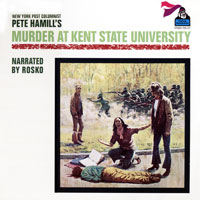
"Four Children Are Still Dead, by Lois Wyse. Excerpt:
"There it was on television, that makes it true doesn't it
I mean if they say it on television it has to be right...but
It can't be right, nobody would shoot on a campus...kids
In the National Guard are just kids who aren't in Vietnam
They're not different, they're not shoot-em-uppers...
Maybe if I close my eyes I will think I heard wrong, I close
My eyes, four children still are dead, four mothers now must
Learn to teach a child to say please and thank you is no
Longer enough, Children now must learn that bullets kill
And when the National Guard shoots, you have to duck
Four fathers are not fathers anymore...in this, a world of
Mourning, I weep for the children that died and for the
Children that killed them"
Recording collection of C Reinsch
William Kunstler at UW Hec Edmunson Pavilion - Oct 3, 1970 - KRAB Oct 6, 1970
This could be a companion to the Seattle Seven documentary posted a couple of months ago. Chicago Seven attorney William Kunstler came to town some months after the Seattle indictment and before the jury selection had started. Here he talks a little about the two cases, but mostly about the current state of law enforcement and the American justice system. On Oct 4th Kunstler's speech to law students was reported in the Seattle Times.
 A copy of the Oct 1 to 14, 1970 program guide has not yet been found, so we don't know how the program was described. Nor has the second reel of tape been located, so this is missing the last ten minutes. Still of interest.
A copy of the Oct 1 to 14, 1970 program guide has not yet been found, so we don't know how the program was described. Nor has the second reel of tape been located, so this is missing the last ten minutes. Still of interest.
![]() Listen now - William Kunstler at UW Hec Edmunson Pavilion - part 1- KRAB Oct 6, 1970 (32:07)
Listen now - William Kunstler at UW Hec Edmunson Pavilion - part 1- KRAB Oct 6, 1970 (32:07)
Recording courtesy Jack Straw Foundation, PA0610
Free the Seattle Eight - KRAB Oct/Nov 1970; KPFA Nov 23, 1970
A documentary on the Seattle Seven (one defendant disappeared) trial over the organizing of demonstrations which culminated in violence on Feb 17, 1970. Produced at KRAB by Jon Leland and the "New Morning Collective", with engineering by Bill Seymour.
Jon Leland, KRAB news director from 1970 to Spring 1971, explains "I fed news from the Seattle 8 trial to Pacifica stations and I think a few others. This gave me the inspiration to create an alternative news radio network, Unicorn News Service. In Spring 1971 I went to DC for the May Day demonstrations and started feeding FM rock stations like KSAN (SF), WNEW (NYC) and WBCN (Boston) thanks to Danny Schechter, The News Dissector, as well as Pacifica and the KRAB/KPOO stations. At the peak I think we had about 70 stations taking the daily reports/feed. We were aggregating reports from college stations all over the country about demonstrations, along with our own DC coverage and reports from Radio Hanoi to give their side of the story vs the Pentagon's."
The program includes several of the defendants sitting around the table at the doughnut shop talking about why and how they have arrived at this juncture of their lives. The language varies from the dogmatic and slogan-laden, to the almost confessional admissions of Susan Stern. Susan died only six years later.
Twenty-five minutes into the program it is reported that "in September, five members of the Seattle conspiracy among others were purged by two women's groups as counter-revolutionary because of male chauvinism and for elitism". So we can assume that the discussion was recorded sometime between Sep and Nov 22nd when jury selection started.
![]() Listen now - Free the Seattle Eight - KRAB Oct/Nov 1970, KPFA Nov 23, 1970 (65:10)
Listen now - Free the Seattle Eight - KRAB Oct/Nov 1970, KPFA Nov 23, 1970 (65:10)
In support of those trying to maintain their memories of those times, below are links to some background material on the Seattle 8-less-1 and the conspiracy trial:
Historylink article by Walt Crowley
Looking Back on the Seattle Conspiracy Trial by Roger Lippman
For more about the Seattle 7 and the TDA demonstration see "KRAB Covers the TDA Demonstration, Federal Courthouse, Seattle - Feb 17, 1970", and The Bear Facts News with Jon Leland - KRAB Dec 10 and 14, 1970
Recording courtesy the Pacifica Radio Archives, www.pacificaradioarchives.org
The Bear Facts News with Jon Leland - KRAB Dec 10 and 14, 1970 - Seattle Seven Mistrial
From guide 206, Nov 1970:
KRAB sets a station precedent this Thursday night at 10:45. BEAR FACTS NEWS premieres, the first daily news program KRAB has attempted. That isn't the only precedent BEAR FACTS sets; it's also the first program we've had in many years that we absolutely can't afford. The limitations of equipment, personnel, and money that always stopped daily news before still exist. We have tape recorders for remote coverage of events, but to produce those tapes for the evening newscast requires editing and production facilities that are already overtaxed with other work. We have a news director, Jon Leland, but to do a competent job, he needs assistance with remote taping, writing, and news gathering. At the absolute minimum BEAR FACTS will cost KRAB $300 per month. With funds from the Corporation For Public Broadcasting we can cover the first two months, and then, unless other funding is acquired, BEAR FACTS will disappear.

And disappear it did. To read more about the Bear Facts project, click here, or on the image at right.
We have audio of excerpts from two Bear Facts broadcasts, both discussing the Seattle Seven conspiracy trial. In the first, the events of Thursday Dec 10 are described, including Judge Boldt declaring a mistrial. Heard in the first clip are news director Jon Leland, defendant Chip Marshall, defendant Michael Lerner, defendant Jeff Dowd, attorney Mike Tigar, defendant Joe Kelly, defendant Mike Abeles, and jurors Floyd Getchell, John Boorman, James Bricker, and Robert Owen. And, that is Bob Friede doing the station ID at the end of the program.
![]() Listen now - Bear Facts News 1 - KRAB Dec 10, 1970 (19:02)
Listen now - Bear Facts News 1 - KRAB Dec 10, 1970 (19:02)
* * * * * * * * * *
The second excerpt, from the following Monday, Dec 14, 1970, features Judge Boldt citing the defendants for contempt. In this clip are Jon Leland and a court room observer named Melinda Rorick. Engineered by Brother Bob.
![]() Listen now - Bear Facts News 2 - KRAB Dec 14, 1970 (18:24)
Listen now - Bear Facts News 2 - KRAB Dec 14, 1970 (18:24)
For two related programs see "Free the Seattle Eight - KRAB Oct/Nov 1970", which is partly documentary, and partly members of the Seattle 7 discussing their futures in light of an indictment for allegedly "conspiring to cause damage" by organizing a demonstration on Feb 17, 1970 "KRAB Covers the TDA Demonstration, Federal Courthouse, Seattle - Feb 17, 1970"
Bear Facts News recordings courtesy Roger Lippman, who also added and corrected some details in the text.
Lorenzo Milam talks with Jeremy Lansman of KDNA about the KRAB-FCC Hearing of Nov 1970 - Jan 1971
This was probably broadcast by KDNA (St Louis), after which the tape made the rounds of the KRAB Nebula, and has now ended up in the NFCB collection at the University of Maryland. We believe this was recorded in January of 1971, based on Lorenzo saying the "hearing concluded two months ago", and because KTAO program guide Nbr 49, Jan 28 to Feb 2, 1971, contains an essay by Lorenzo about the hearing. It was probably reading this guide that prompted Jeremy Lansman, who was currently running KDNA, to call Lorenzo to get some audio about the hearing.
Lorenzo gives an overview of what were the supposed reasons for the FCC to reduce the renewal period of KRAB's license from the normal three years to only one year: the speech by Reverend James Bevel, Paul Sawyer's autobiography, and the San Francisco Mime Troupe interview. And he talks about why the FCC might have tried this tactic on an impoverished noncommercial station instead of a TV network.
2019 disappeared into a miasma of angst, and our recounting of the events leading up to the Hearing, and the results, stalled. We hope to resume telling the tale soon.
Recording courtesy University of Maryland Special Collections and University Archives, collection of the National Federation of Community Broadcasters (NFCB) - umd-bcast-072340
NEW MAY 2021: The Mothers of Invention interviewed by Dick Parker and Paul De Armond - Rec Aug 27, 1971; KRAB Oct 14, 1971
ANY LUGGAGE? NO, JUST THIS MUDSHARK - Richard Vegetable Garden Parker interviews Frank Ripping Weasels Zappa, of the Mothers of Invention, the Los Angeles Philharmonic, and motel rooms across the land; Discussed are fishing techniques at the Edgewater, 200 Motels, what Zubin Mehta is really like, and like that.
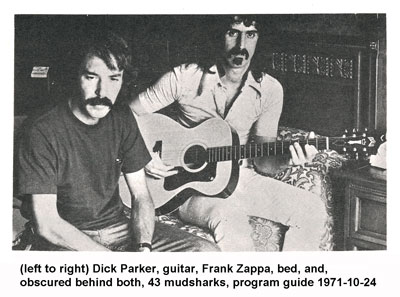
If you're wondering why you didn't hear this program when it was first played, it's because it hasn't been played before and was just done Friday, August 27, when the Mothers were in town for a concert.
In 1971 Richard Parker was the producer of "A Child's Garden of Vegetables" on KRAB, which made him ideal to interview Frank Zappa, Mark Volman, and Jim Pons of the Mothers of Invention at the Edgewater Hotel on Seattle's waterfront. Today, Richard is a Professor Emeritus of Philosophy, having specialized in Critical Thinking, about which he co-authorized a textbook, now in its 13th edition. For this interview, Parker was joined by Paul De Armond, who later became a respected journalist in Bellingham.
Unfortunately, this is only the first 45 minutes of the 90 minute program. The recording was shared with us by a former KRAB listener, who recorded it off the air.
Recording courtesy Pat Conlon, pc0002
William F Buckley and Professor Giovanni Costigan Debate US Foreign Policy - Rec Nov 11, 1971
In 1971 the organizers of "Homecoming" at the University of Washington decided to do something different: Instead of consuming a months ration of beer in 24 hours, and dancing, howling like banshees, around a flaming tower of library tables and chairs, they had a debate on foreign policy. William F ("Firing Line") Buckley was invited to debate University History Professor Giovanni Costigan.
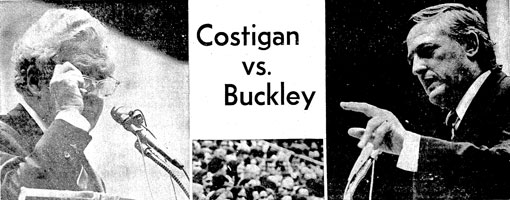
Don Hannula in Seattle Times Nov 12, 1971
Since 1962, Costigan had been an occasional commentator on KRAB, and, as the war (Vietnam, for those of you keeping count) went on, had become an outspoken critic of it as well as an advocate for civil rights, which meant his name was known beyond the campus and KRAB airwaves. So, something like 8,200 people showed up at Hec Edmundsen on the evening of Nov 11, 1971 to hear Buckley and Costigan debate US foreign policy.
The moderator of the debate was Bill Shadel, who, according to Seattle Times "Man about Town" Robert Heilman, used "a souvenir gavel from the time he served as a radio correspondents' official in the United States Senate in 1951-52." In 1960 Shadel had moderated the third presidential debate between Kennedy and Nixon. After retiring from broadcast news in 1963 he taught at the University of Washington until 1975.
KRAB attended and recorded the proceedings. So did KCTS, KOMO, KOL, and KUOW . . . . and perhaps others as well. As you can read in the attachment below (hiding behind the teletype photo), someone from a commercial station plugged a cassette recorder into the PA, which it is believed added an annoying high pitched tone to KRAB's tape.
Behind the scenes another story unfolded: National Public Radio News contacted KRAB asking for a copy of the debate. While Greg Palmer, KRAB Station Manager, searched for a copy of the audio without the annoying tone, a series of contradictory and unintelligible messages arrived on KRAB's NPR DACS machine. The DACS ("Direct Access Communications System") machine was a kind of stripped down teletype that enabled NPR affiliates (before the advent of the internet) to "communicate" with NPR staff.
Greg was annoyed enough with NPR, with the station that caused the irritating tone, and with the DACS machine, to publish the string of messages in the Jan 1972 program guide, and you can read them by clicking on the photo at right.
Originally, there were three 7.5 inch tapes of about 30 minutes each. At some point the tapes were circulated among KRAB Nebula stations, and reels 2 and 3 ended up at WYSO in Yellow Springs, Ohio, where they remain. Reel 1 has vanished. WYSO has shared digitized copies of 2 and 3, so we can now hear that annoying tone ourselves. It isn't 'that' bad, really.
I've held off putting this up on the site until I could find audio for the first twenty-seven minutes, since that contains Professor Costigan's opening remarks which set the tone for the rest of the debate. None of the other radio or TV stations had their copies. The best I could find was in the UW Library Special Collections - a cassette home recording made by setting the recorder next to a TV. Not the best audio, but neither is KRAB's. Now that we have the whole 79 minutes, here it is.
Recording of part 1, 27 minutes, courtesy University of Washington Libraries, Special Collections, Giovanni and Amne Costigan papers, accession #4338-001, CD106
Recordings of parts 2 and 3, 52 minutes total, courtesy WYSO, in 1971 a KRAB Nebula station
Back to the Garden with Richard 'Dick' Parker and Gregory L Palmer - KRAB 1971
From the Dec 9, 1971 guide listing
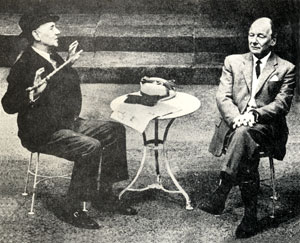
The first of a few programs replaying the improvisational interviews heard every Sunday morning on KRAB's "A Child's Garden of Vegetables". The participants are Dick Parker, Vegetable host, and Greg Palmer, seedling. For the past six months, almost without fail, these two have done an improvised, hopefully comedic interview each week, with such guests as Nasty Canasta, Ivan Vanogranoff (May Day Parade Chairman), the caterer for the Amchitka blast, a bagpipe tuner, the driver of the Mafia sponsored hydroplane, Lloyd Wheels Rainwater, daredevil scooter driver, the official physician of the Lourdes spring, and others. Billy Joe Ray Bob appears throughout as himself.
In this episode interviewed are Nasty Canasta, professional jumper; Ernest Meyerman, stamp designer; and Casper P Boobatts, roller derby husband and spud nut-teer.
![]() Listen now - Back to the Garden with Richard 'Dick' Parker and Gregory L Palmer - KRAB 1971 (39:47)
Listen now - Back to the Garden with Richard 'Dick' Parker and Gregory L Palmer - KRAB 1971 (39:47)
Recording courtesy Will Estill, Tape 4
Home Movies with David Meltzer - Comedic Relics - 1971 to 1972
David Meltzer sending us all sorts of music and thoughts
This is an Home Movies special devoted to David's Comedic Relics: Gracie and George, Nichols and May, Jean Shepherd, and more.
In the Fall of 1971 Home Movies on Monday nights was followed alternately by Nancy Keith's "Dry Slough Road" or Richard AC Greene's "Bach to the Playpen", but in Nov or Dec Richard left for Hawaii to nap and hob-nob with Spiro Agnew while "campaigning" for Land Commissioner of Washington State. Eventually, Greene's slot was taken over by George Shangrow, the "motly musicologist" with "OK**WHAT NEXT": "musical curiosities until midnight-and-a-half and then baroque and pre-baroque requests."
![]() Listen now - Home Movies with David Meltzer - Comedic Relics - 1971 to 1972 (54:46)
Listen now - Home Movies with David Meltzer - Comedic Relics - 1971 to 1972 (54:46)
Recording courtesy Will Estill
Human Migration, 1972 or 1973
The label drifted away long ago, and all that remains is a scribbled "Human migration". The program seems to be about the use of biological markers in anthropological field work, particularly in the Amazon and amongst the Yanomami. The presenter of the the paper is not identified, but he appears to be speaking to a gathering of anthropologists at the University of Washington in late 1972 or 1973. Meanwhile Chagnon's films are being shown at the HUB.
![]() Listen now - Human Migration (24:25)
Listen now - Human Migration (24:25)
Recording collection of C Reinsch
Hesse, Blake, Jung - Dr June Singer - KRAB Jan 20, 1973
 Jungian analyst June Singer describes the spiritual kingdoms of these three thinkers.
Jungian analyst June Singer describes the spiritual kingdoms of these three thinkers.
Dr June Singer speaking before the Friends of Jungian Psychology in Dec 1972
![]() Listen now - Hesse, Blake, Jung - Dr June Singer - KRAB Jan 20, 1973 (60:53)
Listen now - Hesse, Blake, Jung - Dr June Singer - KRAB Jan 20, 1973 (60:53)
Recording courtesy Jack Straw Foundation, PA1388
(In the spirit of) International Women's Day - KRAB Mar 8, 1973 to 1983
On and around March 8th, each year, from 1973 to 1983, KRAB commemorated International Women's Day with special programming. Program schedules for all years, except 1974 when no guide was published, can be found here. Unfortunately, so far, little has turned up in the way of recordings of these, or similar, programs. What is offered here is not so much representative of Women's Day programming as it is an example of programming surviving in the archive produced or hosted by women.
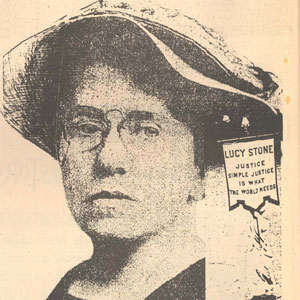
Women and Wildlife - Mar 8, 1974 (22:49) - Harriet Bullitt and Joy Spurr are interviewed by Pamela Jennings and Melissa Garman.
Gouda Cremora (Leila Gorbman) and Caudine La France hosting a Folklife Festival Liar's Contest - May 28, 1979 (69:15)
Margaret Mead speaking about Today's Youth at Bellevue Community College - Apr 6, 1967 (83:16)
Jean Andre talking about happiness - Apr 8, 1968 (15:57)
Joan Rabinowitz with a program of Burmese music - 1982 (61:32)
Susan Stern speaks - Nov 1970 (22:20) - An excerpt from the Seattle Seven documentary posted to the archive last month.
The documentary about the Seattle Seven indictment and forthcoming trial includes a panel discussion taped about a week before the trial was scheduled to start. The panel is made up of members of the Seattle Seven who, earlier that evening had seen the film Woodstock and then stopped off at the The Century on their way to this taping at an "alien place" (KRAB's studio on Roosevelt). A feminist group (was it the Anna Louise Strong Brigade?) had recently issued a condemnation of the males in the SLF, including those of the Seattle 7, for chauvinism.
Through most of the first part of the discussion Susan Stern silently deferred to the males, but at around 2 am her frustration overflowed.
Janet McCloud with a commentary about the living conditions of Native Americans - Nov 16, 1968 (30:24)
Shantha Benegal's Indian music program, a short excerpt - Apr 8, 1984 (13:57)
Kathryn Taylor's Music Room - Apr 15, 1984 (47:42)
Siobhan McKenna with Molly Bloom's soliloquy - (28:45)
If anyone should have any tapes or other documents relating to programming on KRAB that was intended particularly for women, including anything produced by the Anna Louise Strong Brigade of Women's Liberation, The Amazon Media Collective, the Lesbian Feminist Radio Collective, or by any of the many other women whose voices are currently missing from the archive, please let me know.
In the KRAB player you can listen to whatever selection appeals to you, or let the whole thing play.
![]() Listen now - Voices of Women International Women's Day
Listen now - Voices of Women International Women's Day
KRAB Broadcasts Seattle City Council Meetings 'Live' - KRAB Apr 30, 1973
SEATTLE CITY COUNCIL - After years of talking about it, we now begin weekly live broadcasts of City Council meetings, in the hope that we all might better understand what is going on in our city's government. (Guide listing from May 7, 1973)
KRAB had been fascinated with the Seattle City Council since Jon Gallant's commentary about the Blue Laws Dec 21, 1962. Here are a few program listings from the early years when KRAB was forced to send volunteers to the City Council hearing and meetings to record and report back the proceedings:
Feb 24, 1964 - 8.00pm - A POLICE REVIEW BOARD FOR SEATTLE? Further recordings from the City Council 's hearings, this time featuring the Police's presentation.
Followed at 10:00pm by a concert: - SONGS FOR SWINGING POLICEMEN
Apr 10, 1967 - 10:00pm - THE CITY COUNCIL REPORT. In a regular slot, at this time every other Monday, as a "public service," KRAB will present recordings from the the Seattle City Council, in committee and in full meeting. Tonight we hope to broadcast the Life and Times of the License Committee in living color.
Apr 24, 1967 - 10:15pm - REPORT FROM THE CITY COUNCIL: unexpurgated proceedings from meetings of city committees and from the full Council, recorded by Karen Johanson.
May 8, 1967 - 10:00pm - SEATTLE CITY COUNCIL REPORT. We have taken the liberty to edit the April 26 Planning Committee meeting on the control of advertising near the freeway, from 2-1/2 to 1-1/2 hours of hard core testimony and debate.
[ed note: The presentation of recorded excerpts from hearings and meetings went on for months, until. . . . .]
Jul 3, 1967 - 10:00pm - A CITY COUNCIL REPORT. While sitting through her 57th hour of license committee hearings on routine business of the metropolis, our volunteer taper Karen Johansen accidentally stabbed herself in the heart with a zealous fingernail file. Her wounds now healed, she returns to her job of electronically monitoring the slow, judicious processes of city Hall.
[ed note: The programs then continued through August, and culminated in September with Lorenzo Milam interviewing all of the candidates for City Council. Karen Johansen then entered a convent. In 1969, instead of an interview, all of the candidates were offered opportunities to use the commentary time slot to introduce themselves and/or present their positions. . . . Someone wrote in the September guide "One of the city council candidates who was here, after he finished recording his commentary, said. 'You know, if I just had some money, I could win this damn thing.' I'm going to vote for that guy, because I know exactly how he feels."]
In late 1969 KRAB came before the City Council. This was in furtherance of an attempt to get zoning permission to turn the "house across the street" (on the east side of Roosevelt) into a snazzy radio facility, and move there from the rented doughnut shop. Lorenzo had helped us to purchase the house.
From guide 182, Dec 1969: BRINGING IN THE SLEEVES by Robert Hall -
A MOVING STORY
On Wednesday, December 10, we gathered in the chambers of the Seattle City Council in an attempt to get a variance to move the station across the street. Hearing our petition were four city council members: Chairwoman Phyllis Lamphere, and Councilmen Tim Hill, Charles M. Carroll and Ted Best. Also at the hearing were approximately 30 people from the neighborhood opposing our move. We presented our case, and they countered us,
and eventually our petition was denied without prejudice. This means we must alter our plans to suit the Council and then resubmit our petition for a variance. Briefly, the plans will have to be changed to provide for off-the-street parking, plus moving the proposed tower farther from the property line. When this, and a few other things are changed, we'll try it again, with perhaps a greater chance. So, in effect, we didn't win, and we didn't lose. Had our petition simply been denied, we would have had to wait six months to re-submit. As it is, we may be returning to the wars quite soon.
[ed note: Haroo Harray! The Seattle Municipal Archive has a copy of the aforementioned hearing of Dec 10, 1969, and now so do we. So it will be presented in the archive sometime soon!]
Feb 21, 1970 - 9:00pm - CITY COUNCIL OPEN HEARING - Recorded at the Seattle Center Rainier Room
on January 27, this is the open hearing concerning 190 and the proposed bay freeway, Present was the entire city council (except Charles M. Carroll, and the mayor, who was baseballing) and citizens, irate and otherwise.
Mar 19, 1970 - 7:30pm - RIVOLI-EMBASSY-NEW PARIS - the city council hearing on the renewal of license for these, lately controversial (thank you Mr. Cooney), displayers of local talent. Taped by Nancy Lipsett.
In the Fall of 1971 City Council candidacies were back utilizing KRAB's commentary slots to advance their causes.
Aug 31, 1972 - 8:20pm - DAY CARE HOMES HEARING - Last month we had a program from another city on the subject of Day Care Centers. Here in Seattle the problem of day care for young children is receiving attention as well. This program is a City Council hearing on the possibilities allowing a change in zoning laws to permit private homes up to twelve children for day care. Day care mothers who can take care of up to twelve children may be one solution to the overcrowding of day care centers.
Apr 30, 1973 - 2:00pm - Open Time [ed note: This is how the first LIVE City Council meeting was listed in the guide. It was something of a test of the equipment, which worked for a change.]
Liem Eng Tuai, the President of the Council, announces that KRAB is broadcasting the meeting, at the beginning of the meeting, and again later when several council members arrive late.
![]() Listen now - KRAB Broadcasts Seattle City Council Meetings 'Live' - KRAB Apr 30, 1973 (65:25)
Listen now - KRAB Broadcasts Seattle City Council Meetings 'Live' - KRAB Apr 30, 1973 (65:25)
|
|
|
|
|
||||
|
||||||||
Recording and photographs courtesy Seattle Municipal Archives
Charles Smith, of the John Birch Society, speaks before University of Washington Young Americans for Freedom - KRAB May 17, 1973
MR. SMITH COMES TO WASHINGTON. Charles Smith, one of the few black members of the John Birch Society, speaklng at the University of Washington in an engagement sponsored by the Young Americans For Freedom.
The tape label indicates this was recorded in May 1973, and first broadcast on May 17, which looks like it might have been during an afternoon open time. Another broadcast on Jul 13, 1973 is listed, but the program guide for that month is missing so we cannot confirm. The only print mention of Smith's visit to Seattle we have found is in the Seattle Times of May 2, 1973, where it says he will be speaking at a number of places on the subject of "Are Guns to Blame?" (See tape label on right.) Here, he seems to be talking about his views regarding the origin of various forms of government and economic systems.
Attached is an article by Bruce Johansen in the Seattle Times printed Apr 22, 1973, describing a resurgence of interest in conservatism on college campuses. Evidently the editor of the UW Daily student newspaper at that time was a member of the Young Americans for Freedom.
Recording courtesy Jack Straw Foundation, JSF PA0934
Peace Pilgrim Speaks - Rec Jul 20, 1973; KRAB Aug 30, 1973
Pamela Jennings and Ruth-Claire (Weintraub) speak with Peace Pilgrim, a lady who has walked more than 25,000 miles for peace, on foot and on faith. She walks until given shelter and fasts until given food. She has had no money for 20 years. A lady with a Simple magic formula for resolving conflicts and for avoiding conflicts. Mellow, mellow, magical, mystical.
 For a little more about Peace Pilgrim, here is an article in the Seattle Times of July 24, 1973, another article by Steve Taylor in Psychology Today published in 2016, and a link to the web site created by the Friends of Peace Pilgrim.
For a little more about Peace Pilgrim, here is an article in the Seattle Times of July 24, 1973, another article by Steve Taylor in Psychology Today published in 2016, and a link to the web site created by the Friends of Peace Pilgrim.
![]() Listen now - Peace Pilgrim Speaks - Rec Jul 20, 1973; KRAB Aug 30, 1973 (56:07)
Listen now - Peace Pilgrim Speaks - Rec Jul 20, 1973; KRAB Aug 30, 1973 (56:07)
Recording courtesy Jack Straw Foundation, JSF PA0702
Women and Wildlife - Mar 8, 1974
 This program was aired live as part of KRAB's 1974 International Women's Day schedule. Harriet Bullitt (then Harriet Brewster Rice) editor and publisher of Pacific Search magazine, and Joy Spurr, wildlife photographer talk with Pamela Jennings and Melissa Garman. They discuss environmental problems, women in vocations, and how-to's of wildlife photography.
This program was aired live as part of KRAB's 1974 International Women's Day schedule. Harriet Bullitt (then Harriet Brewster Rice) editor and publisher of Pacific Search magazine, and Joy Spurr, wildlife photographer talk with Pamela Jennings and Melissa Garman. They discuss environmental problems, women in vocations, and how-to's of wildlife photography.
![]() Listen now - Women and Wildlife (23:58)
Listen now - Women and Wildlife (23:58)
Recording courtesy of the Jack Straw Foundation, JSF inv PA0233
Spectrum #186 Carlos Hagen Presents: Reflections on Death - KRAB Feb 27, 1975
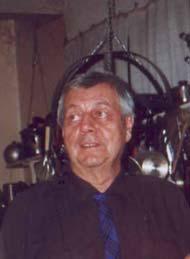 Carlos Hagen was a Chilean who came to the US in the 1950's, as he got his master's degree in geography in 1957 at the University of Washington. He appears to have left Seattle before KRAB arrived, moving to Los Angeles, and taking the position of head of the UCLA Map Library. His interests and curiosity were expansive. According to the memorial (linked below) he came to the US because of his interest in filmmaking, but eventually settled on producing radio documentaries. Many of his programs were aired on KPFK and other Pacifica stations, and appeared on KRAB from 1970 through 1984. Hagen was a fascinating, if slightly bizarre character. He produced a vast array of documentaries on subjects ranging from Latin American music to black lung disease, and Edith Piaf. To call him a hoarder doesn't give him credit for his discriminating collections of thousands of off-the-air recordings of KPFK programs, vinyl LPs, newspapers, and magazines. He died in 2010 (read memorial). He seems to have received the assistance from members of the Firesign Theatre, one of whom describes his efforts to organize Hagen's archives here.
Carlos Hagen was a Chilean who came to the US in the 1950's, as he got his master's degree in geography in 1957 at the University of Washington. He appears to have left Seattle before KRAB arrived, moving to Los Angeles, and taking the position of head of the UCLA Map Library. His interests and curiosity were expansive. According to the memorial (linked below) he came to the US because of his interest in filmmaking, but eventually settled on producing radio documentaries. Many of his programs were aired on KPFK and other Pacifica stations, and appeared on KRAB from 1970 through 1984. Hagen was a fascinating, if slightly bizarre character. He produced a vast array of documentaries on subjects ranging from Latin American music to black lung disease, and Edith Piaf. To call him a hoarder doesn't give him credit for his discriminating collections of thousands of off-the-air recordings of KPFK programs, vinyl LPs, newspapers, and magazines. He died in 2010 (read memorial). He seems to have received the assistance from members of the Firesign Theatre, one of whom describes his efforts to organize Hagen's archives here.
Carlos Hagen presents a remarkable conversation with Stanislav Grof and Joan Halifax. Grof is the Czech medical doctor and researcher who, with his wife Joan, an outstanding Anthropologist specializing in rites of passage, has done extensive work in the application of LSD therapy to terminal cancer patients to help them in their final transition. In this conversation they describe some of the most impressive cases they have worked with, and the feelings and visions of patients at the moment of death.
![]() Listen now - Carlos Hagen Presents: Reflections on Death (61:21)
Listen now - Carlos Hagen Presents: Reflections on Death (61:21)
This recording has been shared under a Creative Commons license by the Internet Archives, RADIOM, and the Pacifica Archives.
The White Handed-Gibbon - KRAB Mar 7, 1975
 Unorganized is not unstructured. Is it the function of sound to communicate ideas, or emotions? From the Malay Peninsula, a fellow creature "speaks." Produced by C. Reinsch with the assistance of the Woodland Park Zoo.
Unorganized is not unstructured. Is it the function of sound to communicate ideas, or emotions? From the Malay Peninsula, a fellow creature "speaks." Produced by C. Reinsch with the assistance of the Woodland Park Zoo.
I hope it was not me that wrote the program guide note above. This was recorded in the old Primate House/Prison that was located on the west side of the zoo (approximately where the "Zoomazium" is now located). Somehow I got permission from Zoo staff, and early one morning a keeper placed the microphone behind the glass in front of the gibbon's quarters. How the gibbon got all those quarters I'll never know. There were three gibbons, two adults and a juvenile. The original tape is long gone, but the file is dated Feb 13, 1974.
![]() Listen now - The White-Handed Gibbon - KRAB Mar 7, 1975 (13:24)
Listen now - The White-Handed Gibbon - KRAB Mar 7, 1975 (13:24)
Recording collection of C Reinsch
The Role of Alternative Media in Seattle - KRAB Jun, 10, 1975
From the June 1975 Marathon poster:
Who are the alternative media? Whom do they hope to serve? To what goals do they aspire? A live, in-studio panel discussion, to which you listeners are invited to phone in questions and comments at 325-5110. Participants include David Brewster (Editor, the Weekly); Alec Fisken (publisher, the Sun); Ann-Marie Mitroff (from the women's newspaper, Pandora); Walt Crowley (of the defunct underground newspaper, the Helix); Raymond Mungo (founder, Liberation News Service); and Michele Celarier (of the Northwest Passage). Moderated by Robert Weppner.
![]() Listen now - The Role of Alternative Media in Seattle (112:53)
Listen now - The Role of Alternative Media in Seattle (112:53)
Recording courtesy Robert Weppner
Nuclear Sabotage - How Easy Is It? - KRAB Sep 27, 1975
A talk by Dr L Douglas DeNike, a clinical psychologist formerly on the faculty at UCLA, and now a technical consultant for People for Proof, a California group concerned about nuclear safeguards.
 Forty-one years ago fears of nuclear sabotage were quickly dismissed. Now, do they seem so far fetched?
Forty-one years ago fears of nuclear sabotage were quickly dismissed. Now, do they seem so far fetched?
![]() Listen now - Nuclear Sabotage - How Easy Is It - KRAB Sep 27, 1975 (47:24)
Listen now - Nuclear Sabotage - How Easy Is It - KRAB Sep 27, 1975 (47:24)
Recording courtesy Jack Straw Foundation, PA0880
The Responsibility of Corporations to the Public - Kenneth MacDonald interviewed by Phil Andrus - Rec Sep 23, 1975; KRAB Nov 7, 1975
Ken MacDonald is a full-time Seattle attorney and a part-time, stockholder. He holds stock in, among others, the Boeing Company and the SeaFirst Corporation. MacDonald was forcibly ejected from one Boeing stockholders' meeting when he attempted to express dissatisfaction with the B-1 bomber program.
Kenneth MacDonald died in 2012. In "an appreciation" in the Seattle PI, Joel Connelly led off with the following:
"Seattle lawyer Ken MacDonald picked his first civil rights fight in the 1930’s, with the fraternity at Dartmouth that he wanted to join. The fraternity did not permit African-Americans as members. MacDonald did what would come naturally for the rest of his life: He led a protest."
There is also an obituary in the Seattle Times written by Maureen O'Hagan. After reading these two tributes, I was surprised MacDonald's only other appearance on KRAB was a debate in 1965 when his name was miss-spelled: IS THE WASHINGTON STATE BOARD AGAINST DISCRIMINATION EFFECTIVE? A hot debate between Walt Hundley of Seattle CORE, who says it isn't and Ken McDonald of the Board. [program guide nbr 74].
Anyway, corporations have never been trusted, and once upon a time when the laws enabling them to be formed were passed, there was an expectation that the corporation would "serve the public interest". Many years later it seems the sector of the public that benefits most from corporate shenanigans are the hedge fund managers.
But back in 1975 there were still people fighting for a fair deal
Recording courtesy Jack Straw Foundation, JSF PA1193
US Labor Movement in Story and Song, produced by Libby Sinclair - KRAB Dec 1975
- click here to open this item
Democracy in an Age of Scarcity - Can We Avoid 1984? Robert Theobald Speaks - KRAB Dec 12, 1975
A speech by economist Robert Theobald, a Cambridge-trained scholar who challenges the assumption that continued material economic growth is both possible and desirable in the developed nations of the world. He is author of a number of books concerned with national economics and was instrumental in preparing the "Triple Revolution" report presented to President Johnson in 1964. His latest publication is An Alternative Future for America's Third Century.
This was presented at Seattle University Oct 21, 1975, as part of a series of lectures about "Democracy in an Age of Scarcity." The Seattle Times did not report about this event, or Theobald's speech, but the Seattle University student newspaper, The Spectator, did.
From the 1999 Associated Press obituary: Mr Theobald argued that blind confidence in economic growth, technology and the culture of materialism destroyed the environment and failed to provide opportunity and income for many people. "We've halved the size of our families, doubled the size of our houses and have to fill four times as much space with stuff," he said in a 1997 interview with The Spokesman-Review newspaper (Spokane).
Recorded, produced and announced by Phil Andrus.
Recording courtesy Jack Straw Foundation, PA0887
Dec 3, 2016 - After I wrote about this program in the KRAB facebook group, Richard Wolf responded:
"I remember this! When I listened to it, it inspired me to write my essay for government class that spring. I credited Robert Theobald on my paper, and I got a B+ grade on it. Our teacher (Mr Frederick at Renton High) would hand our papers back with a short comment. Mine was 'you listen to KRAB don't you.'"
Sunnyside Up! a Program for Children, produced by Don Finkel and Libby Sinclair - KRAB 1976
Zoe, David, their Dad, friend Libby and other children get together before breakfast for stories and songs. Set the radio dial the night before, hide the TV and sleep late while your kids listen -- or join them over your eggs: start the day sunnyside up. Produced by Don Finkel and Libby Sinclair.
In the 1960's children's programming on KRAB was generally in the form of readings at 5:30pm weekday afternoons by Janet Hews, Len Kaplan, Marjorie Nelson, Noel Batdorff, Judy Buck, Wayne Negus, Marguerite David, Bernard Poll, Bob Poll, Betty McCorkle, and others. In the mid 1970s Peggy DeLeers read stories, and the KRABettes did their own version of a program. Sunnyside Up! seems to have run from Dec 1975 through Dec 1976. In 1982 another show appeared for a time called Skip to My Lou
Unfortunately, few recordings of the childrens' programs have been located. This one was found, unidentified, on the back of a recording from the 1976 Asian American Writers Conference. It ends abruptly.
Recording courtesy Karen Berge, KB0020
A Talk by Richard Hubbard, Former Manager of Quality Assurance for General Electric Nuclear - KRAB Apr 5, 1976
When Richard Hubbard resigned his position with General Electric, after 16 years with that company, he immediately began to work in support of the California Nuclear Safeguards Intiative. This talk was recorded on March 12 [1976] in the UW Hub, at a meeting sponsored by the Coalition for Safe Energy.
A Nuclear Engineer talks about safety and lapses in safety protocals at nuclear reactor power plants.
In the continuing KRAB Archive series "Burning Down the House" (or "How We Set the World on Fire") attached are a series of news clippings discussing presentations in which Richard Hubbard participated, and Initiative 325. The Initiative would have required the following: elimination of limits on Federal liability for nuclear accidents; testing of emergency safety systems when plants are in operation; demonstrating that there are safe methods of handling and storing nuclear waste; publication of evacuation plans for each nuclear project; and demonstrating that there is proof of the need for the energy from each existing and new plant.
 Recorded by Bob Burk, and produced by Phil Andrus. In 1975 Phil and Bob had started a regular program of Environmental News. The program ran through 1981 with the additional help of Elizabeth Grady, Chris Minerd, Kim Myers, Janus Masi, Paul Stanbery, John Comstock, Steve Rubin, Kim Godson, Kim Goodman, Daryl Matson, and Vivia Boe.
Recorded by Bob Burk, and produced by Phil Andrus. In 1975 Phil and Bob had started a regular program of Environmental News. The program ran through 1981 with the additional help of Elizabeth Grady, Chris Minerd, Kim Myers, Janus Masi, Paul Stanbery, John Comstock, Steve Rubin, Kim Godson, Kim Goodman, Daryl Matson, and Vivia Boe.
Recording courtesy Jack Straw Foundation, JSF PA0059
A Philosophical Basis For Environmental Activism - A Talk by S P R Charter - Rec May 3, 1976; KRAB Jun 15, 1976
Dr. Charter is a professor of human ecology and has written a number of books, including The Planning Myth, Man on Earth, and Man the Myth, Man the Actuality. He is concerned especially with developing a philosophical, rather than utilitarian, basis for environmental preservation.
Neither the program guide description, tape label, or Seattle Times tell us where this presentation was made, or the context of it. It was recorded by Phil Andrus.
S P R Charter was first heard on KRAB in 1967 in a program from KPFA where he interviewed Aldous Huxley and discussed the idea of mankind and the problems that will face the human race no matter where it lives. He was on KRAB again in 1969 with a six part series reading from his book "For Unto us a Child is Born; The Choice and The Threat" (a human-ecological view of population pressures).
Searching for more information about S P R Charter turns up little. The Online Archive of California has a collection of his papers, that is not online, and this brief "abstract": "Papers of pioneer ecologist, physicist, and philosopher. Includes correspondence, mainly re his writings and lectures, drafts of books, articles and lectures, and transcripts of radio commentaries."

![]() Listen now - A Philosophical Basis For Environmental Activism - A Talk by S P R Charter - Rec May 3, 1976; KRAB Jun 15, 1976 (54:54)
Listen now - A Philosophical Basis For Environmental Activism - A Talk by S P R Charter - Rec May 3, 1976; KRAB Jun 15, 1976 (54:54)
Recording courtesy Jack Straw Foundation, JSF PA0063
Tom Scribner, Musical Saw Virtuoso, interviewed by Phil Andrus - Dec 22, 1976
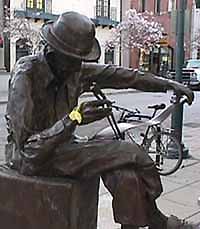 Interviewed here and there by Phil Andrus, discusses history of musical saw and Scribner’s experiences as a Wobblie logger and sawmill worker in the 1920’s. Shortly after this interview, Scribner moved to Santa Cruz, where the Public Library shares this biographical note:
Interviewed here and there by Phil Andrus, discusses history of musical saw and Scribner’s experiences as a Wobblie logger and sawmill worker in the 1920’s. Shortly after this interview, Scribner moved to Santa Cruz, where the Public Library shares this biographical note:
"On the 1500 block of Pacific Avenue sits a bronze sculpture of an elderly man wearing a Derby hat and playing the musical saw. The man is Tom Jefferson Scribner. During the 1970's and until his death in 1982, Scribner was a common sight on the Pacific Garden Mall where he played his musical saw for passersby. He was something of a counter culture celebrity, for he was a man of many talents: vaudevillian, editor, humorist, philosopher, educator, logger, and a labor organizer with the Industrial Workers of the World (the 'Wobblies')."
Tom Scribner first appeared on KRAB Jul 1, 1969 in a program from KPFA, talking with Lou Hartman.
![]() Listen now - Tom Scribner, Musical Saw Virtuoso - Dec 22, 1976 (69:34)
Listen now - Tom Scribner, Musical Saw Virtuoso - Dec 22, 1976 (69:34)
Recording courtesy of Phil Andrus
The KRABettes Do Christmas - KRAB Dec 1976 or 1977
Stories, songs and poems, with Abigail, Jesse, Kim, Laura, and Jennifer.
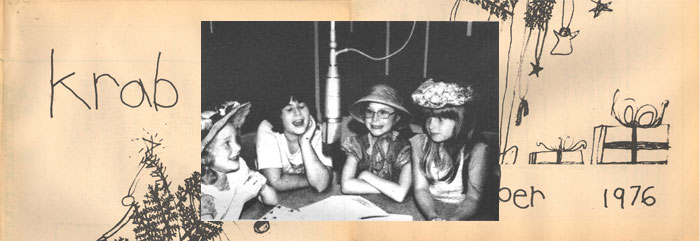
My recollection of the KRABettes is of them lined up neatly (birds on a wire) on one of the beat up couches in the KRAB lobby, all with their heads down, quietly reading, while their mother, Peggy, was being recorded reading an Irish folktale, or a Grimm story. Here they are with their Christmas production.
![]() Listen now - The KRABettes Do Christmas - KRAB Dec 1976 or 1977 (25:54)
Listen now - The KRABettes Do Christmas - KRAB Dec 1976 or 1977 (25:54)
Recording courtesy Karen Berge
A Talk by Barry Commoner - Feb 3, 1977; KRAB Apr 26, 1977
Who is an environmentalist known for his books "The Closing Circle", "The Poverty of Power" and others. This speech, recorded in February, is concerned with relationships between energy and economy. Produced by Phil Andrus.
Short article in Seattle Times covering the Energy 2000 Conference, Feb 4, 1977
![]() Listen now - A Talk by Barry Commoner - Feb 3, 1977; KRAB Apr 26, 1977 (63:22)
Listen now - A Talk by Barry Commoner - Feb 3, 1977; KRAB Apr 26, 1977 (63:22)
Recording courtesy Jack Straw Foundation, PA0833
The George Jackson Brigade Sends a Message - May 1977
In May 1977 KRAB and KZAM both received copies of a communique from the George Jackson Brigade. What the form of the communique was (tape or transcript?), how it was passed to KRAB, and whether KRAB actually ever did anything with it is unclear, as are all other details. That this tape exists at all is something of a surprise. In various communiques, the GJB admitted to bombing and what they called "expropriation". It seems that KRAB proved to be ineffective in disseminating the GJB's message, and they moved on.
Click here to see the FBI's files
Click here to see a book about the GJB
Or click here to see stories in the Seattle Times and Spokane Daily Chronicle on May 13, 1977.
![]() Listen now - The George Jackson Brigade Sends a Message - May 1977 (10:57)
Listen now - The George Jackson Brigade Sends a Message - May 1977 (10:57)
Recording courtesy of the Jack Straw Foundation, JSF inv PA1335
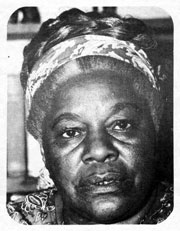 What's Goin' Down: Flo Ware talks with Charles Royer - KRAB Aug 1, 1977
What's Goin' Down: Flo Ware talks with Charles Royer - KRAB Aug 1, 1977
Flo Ware was a Seattle activist and advocate for causes of civil and human rights. She first appeared on KRAB doing the occasional commentary, then as a participant and moderator of panel discussions. By 1969 she had a regular program of interviews and discussion that came to be called "What's Goin' Down", and which ran irregularly until mid-1978.
Outside of KRAB she was Vice-President of the Seattle chapter of CORE; in 1968 she ran for Congress against Brock Adams on the Peace and Freedom Party ticket; also in 1968, she led the Washington delegation to the Poor Peoples March on Washington and took Brock for a tour of Resurrection City. Read more in HistoryLink. There is also an interview of Flo in the Oct 1968 Helix.
In this program she interviews Charles Royer, former news anchor for KING-TV and at this time candidate for mayor of Seattle. The women's conference Flo describes as the week before the taping of this interview was in Ellensburg on the Jul 8, 1977 weekend at which women with progressive agendas were out numbered and out maneuvered by Phyllis Schlafly's flying squads.
![]() Listen now - What's Goin' Down, with Flo Ware talking with Charles Royer - KRAB Aug 1, 1977 (33:54)
Listen now - What's Goin' Down, with Flo Ware talking with Charles Royer - KRAB Aug 1, 1977 (33:54)
Recording courtesy Jack Straw Foundation, PA1212
Flux Art - An interview of George Maciunas - KRAB Nov 18, 1977
Flux Art: An Historical Perspective George Maciunas, father of the Fluxus art movement, presents in this interview with Bill Woods, an Amtrak bartender, an historical perspective of this humorous art clique. A Mouth Production.
According to web sources, this was recorded in Seattle shortly after "the last Fluxus Festival to be organized and directed by Maciunas. Maciunas died eight months later, in May 1978, at the age of 46."
![]() Listen now - Flux Art - An interview of George Maciunas - KRAB Nov 18, 1977 (55:10)
Listen now - Flux Art - An interview of George Maciunas - KRAB Nov 18, 1977 (55:10)
Recording courtesy Allen Bukoff.com
NEW MAY 2021: The Promiscuous Dreamer with Paul Stanbery - About 12 tone composition - KRAB May 23, 1978
The Composer's Dozen. Take 12 tones, arrange 'em anyway you like, what've you got? Well, Schoenberg, Berg, or Webern to begin with. Paul Stanbery (with help from Leonard Bernstein and Alfred Frankenstein) examines the 12-tone school of composition and presents music by its three masters to let you know all you ever wanted to about 12-tone music but were too bored to ask.
The recording is only 45 minutes of what must have been a much longer program. Our intention with sharing these incomplete programs is to show the variety in KRAB programming and reveal the diversity in KRAB volunteer programmer interests. It appears that at this time Paul Stanbery was producing a fortnightly (alternate Tuesdays) all night program starting with "The Promiscuous Dreamer" at 11pm, and continuing into "How High the Morning Star" at 4am.
This recording begins (in mid-sentence) with Leonard Bernstein from his lecture series "The Unanaswered Question". He talks and provides musical examples.
Then Paul Stanbery offers some of his own comments and examples, and introduces Ward Botsford "a producer of classical and spoken recordings, interested in unusual repertory and forgotten historical recordings. At the Vox and Caedmon Records labels in the 1950's, 60's and 70's, he recorded little-known Dvorak pieces and spoken recordings by Sir John Gielgud, T. S. Eliot and others. He also made field recordings of the sounds of early NASA spaceships and supersonic jets. In 1979 he founded the Arabesque label to reissue music from EMI and other companies. In the 90's Mr. Botsford managed a classical music website for Microsoft and founded his own site, classicalmusicguide.com." (Discogs profile from NY Times obituary)
Recording courtesy Pat Conlon, pc0002
From Port to Port Aboard the Steamboat Virginia V - May 31, 1978
Launched in 1922, the Virginia V is the last working vessel of Puget Sound's historic mosquito fleet. For sixteen years, the V carried passengers between Seattle and Tacoma through Colvos Passage, stopping on her way at over a dozen tiny beach side locations, communities, such as Spring Beach, Maplewood, Fragaria Cove and Cross's Landing, Remembering the Virginia V's past, and discussing her future, will be three people who know her well: Jean Hudson Lunzer, Webster Anderson and Roland Carey.
![]() Listen now - From Port to Port Aboard the Steamboat Virginia V (52:03)
Listen now - From Port to Port Aboard the Steamboat Virginia V (52:03)
Recording courtesy Phil Andrus
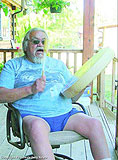 |
|---|
Whale Hunting and Halibut Fishing - KRAB Nov 2, 1979
Makah heriditary chief Lester Hamilton Greene (1937-2009) talks with Phil Andrus about Makah traditions, his grandparents and how they earned their livelihood from sea and land.
Produced by Phil Andrus. Click on photo for an article in the Peninsula Daily News. Another story can be found here.
![]() Listen now - Hamilton Greene - KRAB Nov 2, 1979 (42:21)
Listen now - Hamilton Greene - KRAB Nov 2, 1979 (42:21)
Recording courtesy Phil Andrus
Go to spoken word programming of the | |||||
If you possess any souvenirs (program guides, tapes, or photos) or have a story about your experience with KRAB you are willing to share, please email archive@krabarchive.com
